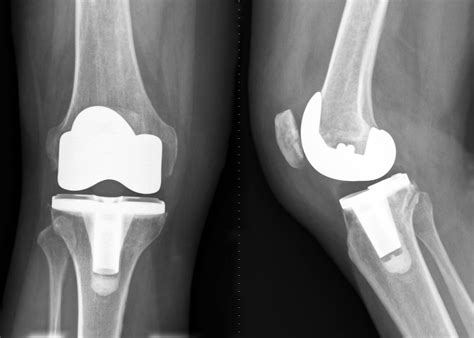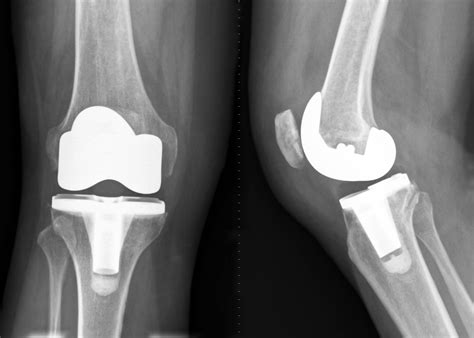Intro
Discover the ins and outs of Total Knee Replacement Surgery, including knee arthroplasty, joint replacement, and orthopedic surgery, to alleviate knee pain and restore mobility with this life-changing procedure.
Total knee replacement surgery is a highly effective procedure for alleviating severe knee pain and restoring mobility in individuals with end-stage knee arthritis or other knee conditions. The importance of this topic cannot be overstated, as millions of people worldwide suffer from knee pain that significantly impacts their quality of life. Understanding the benefits, risks, and recovery process of total knee replacement surgery is crucial for individuals considering this procedure. As we delve into the world of total knee replacement, it becomes clear that this surgery has the potential to transform lives, enabling people to regain their independence and pursue activities they thought were lost forever.
The decision to undergo total knee replacement surgery is often made after exhausting other treatment options, such as physical therapy, medications, and injections. As knee arthritis progresses, the cartilage that cushions the bones in the knee joint gradually wears away, leading to bone-on-bone contact and excruciating pain. This condition can make everyday activities, such as walking, climbing stairs, or even standing, a daunting challenge. Total knee replacement surgery offers a beacon of hope for these individuals, providing a chance to regain their mobility and live a pain-free life.
The journey to total knee replacement surgery begins with a thorough evaluation by an orthopedic surgeon, who will assess the severity of the knee condition and determine if surgery is the best course of action. This evaluation typically involves a physical examination, review of medical history, and imaging tests, such as X-rays or MRI scans. Once the decision to proceed with surgery is made, the individual will undergo a series of pre-operative tests and preparations to ensure a smooth and successful procedure. With the advancements in medical technology and surgical techniques, total knee replacement surgery has become a highly effective and safe procedure, with a high success rate and minimal complications.
Total Knee Replacement Surgery Overview

Benefits of Total Knee Replacement Surgery
The benefits of total knee replacement surgery are numerous and well-documented. Some of the most significant advantages include: * Significant reduction in knee pain and discomfort * Improved mobility and range of motion * Enhanced quality of life, with the ability to perform daily activities with ease * Increased independence, with the ability to walk, climb stairs, and engage in physical activities without assistance * High success rate, with a significant majority of patients experiencing excellent resultsPreparation and Recovery

Recovery from total knee replacement surgery typically takes several weeks to several months, during which time the individual will need to follow a rehabilitation program to regain strength and mobility in the knee. This program will include physical therapy, exercises, and pain management techniques to ensure a smooth and successful recovery. It is essential to follow the instructions of the orthopedic surgeon and physical therapist to ensure a full recovery and to minimize the risk of complications.
Rehabilitation and Physical Therapy
Rehabilitation and physical therapy play a critical role in the recovery process after total knee replacement surgery. The goal of rehabilitation is to restore strength, mobility, and function to the knee, as well as to reduce pain and discomfort. A physical therapist will work with the individual to develop a personalized rehabilitation program, which will include exercises, stretches, and other techniques to promote healing and recovery. Some of the key components of rehabilitation and physical therapy include: * Range of motion exercises to improve flexibility and mobility * Strengthening exercises to build muscle strength and endurance * Balance and coordination exercises to improve stability and reduce the risk of falls * Pain management techniques, such as ice, heat, or medication, to reduce discomfort and promote healingRisks and Complications

It is essential to discuss these risks and complications with the orthopedic surgeon and to follow their instructions carefully to minimize the risk of complications and ensure a smooth and successful recovery.
Minimizing Risks and Complications
To minimize the risks and complications associated with total knee replacement surgery, it is essential to: * Follow the instructions of the orthopedic surgeon and physical therapist carefully * Attend all scheduled follow-up appointments and rehabilitation sessions * Take medications as directed to prevent infection, blood clots, or other complications * Avoid heavy lifting, bending, or strenuous activities, which can put excessive stress on the knee joint * Maintain a healthy weight, which can reduce the risk of complications and promote healingAdvances in Total Knee Replacement Surgery

These advances have improved the outcomes and reduced the risks associated with total knee replacement surgery, making it a highly effective and safe procedure for individuals with severe knee arthritis or other knee conditions.
Future Directions
The future of total knee replacement surgery is promising, with ongoing research and development focused on improving the safety, effectiveness, and outcomes of the procedure. Some of the potential future directions include: * The use of robotic-assisted surgery, which can improve accuracy and precision * The development of new materials and designs, which can improve the durability and performance of prostheses * The use of advanced imaging and navigation systems, which can improve the accuracy and precision of the procedure * The development of personalized medicine, which can tailor the procedure to the individual's unique needs and anatomyAs research and development continue to advance, total knee replacement surgery is likely to become an even more effective and safe procedure, with improved outcomes and reduced risks.
What are the benefits of total knee replacement surgery?
+Total knee replacement surgery can provide significant relief from knee pain and discomfort, improve mobility and range of motion, and enhance quality of life. It can also increase independence and reduce the need for pain medications or other treatments.
How long does it take to recover from total knee replacement surgery?
+Recovery from total knee replacement surgery typically takes several weeks to several months, during which time the individual will need to follow a rehabilitation program to regain strength and mobility in the knee. The length of recovery can vary depending on the individual's overall health, age, and other factors.
What are the risks and complications associated with total knee replacement surgery?
+As with any surgical procedure, there are risks and complications associated with total knee replacement surgery, including infection, blood clots, nerve damage, prosthesis failure, and reaction to anesthesia. It is essential to discuss these risks and complications with the orthopedic surgeon and to follow their instructions carefully to minimize the risk of complications.
Can total knee replacement surgery be performed on both knees at the same time?
+Yes, total knee replacement surgery can be performed on both knees at the same time, a procedure known as bilateral total knee replacement. However, this approach is typically reserved for individuals with severe knee arthritis or other knee conditions in both knees, and who are otherwise healthy and able to tolerate the procedure.
How long does a total knee replacement prosthesis last?
+The lifespan of a total knee replacement prosthesis can vary depending on several factors, including the individual's age, weight, activity level, and overall health. On average, a total knee replacement prosthesis can last for 15 to 20 years or more, although some prostheses may need to be revised or replaced sooner.
In conclusion, total knee replacement surgery is a highly effective procedure for alleviating severe knee pain and restoring mobility in individuals with end-stage knee arthritis or other knee conditions. By understanding the benefits, risks, and recovery process of total knee replacement surgery, individuals can make informed decisions about their treatment options and take the first step towards a pain-free life. We invite you to share your thoughts and experiences with total knee replacement surgery, and to ask any questions you may have about this topic. Your feedback and engagement are essential in helping us to provide the most accurate and helpful information possible.
